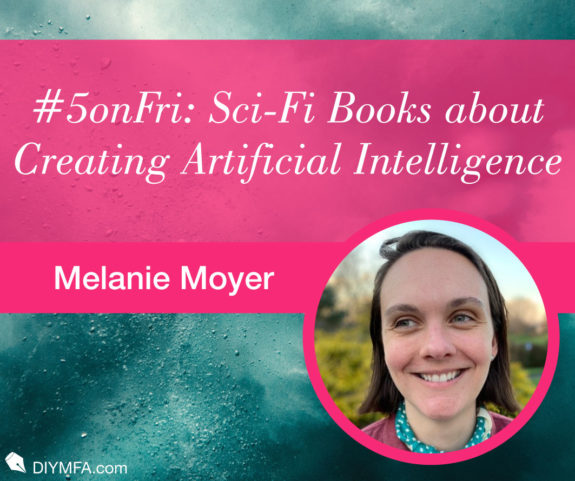One thing that really fascinated me while writing The Original Glitch was trying to understand why anyone would want to do this. There are certainly reasons to create algorithms with specific goals that can benefit us as users. But why are we so interested in creating artificial intelligence, a human-mirroring collection of algorithms?
In addition to looking at what present-day data scientists and engineers had to say about it, I also looked at our cultural history. From Enkidu being formed from clay in the Epic of Gilgamesh to HAL 9000 in Stanley Kubrick’s 2001: A Space Odyssey, why are we so fascinated with finding different, more complicated ways to create people-like entities?
What’s fascinating in this tour of literature’s history of humans creating artificial intelligence is the different ways we see ourselves benefitting from this process. While having biological offspring fulfills certain social and instinctual needs for a species, creating artificial intelligence usually involves some sort of goal—a servant class, a problem solver, etc.
Further, where do writers fall in all of this? After all, we’re creating characters. While these aren’t independent entities with their own agency and ability to affect the world outside their stories (though following that logic Wes Craven’s inventive film 1994 New Nightmare, in which his characters come alive, is interesting to think about), we’re pouring backstories and motivations and personal relationships into people that don’t exist. Why do we do it? What’s in it for humans to invent worlds and people, either on paper or inside machines or even in the real world?
It’s something I don’t have an answer to, but reading the books below might offer some insight into this impulse for creating artificial intelligence that we all seem to share.
Do Androids Dream of Electric Sheep? By Philip K. Dick
One thing Philip K. Dick’s story did was bring about a real noir-style depth to the creations of science fiction. It wasn’t just beeping robots clunking after human masters. These were, for all intents and purposes, human beings. And they’re treated as second-class citizens at best, and dangerous elements at worst. Dick even dives a bit into a form of simulation hypothesis over who is and who is not human. If you were an android, would you know it?
Frankenstein by Mary Shelley
The original modern tale of man creating man. Mary Shelley’s influential work is considered the first entry into the world of science fiction and certainly the first science fiction horror novel. A young scientist wants to stitch together disparate body parts and run an electrical current through them to see if he can beget a living thing, just because he can. It’s about hubris and the stupidity of science for science’s sake. The Creature Frankenstein creates is not just sentient but develops a deep internal world that is ultimately his creator’s undoing, not unlike the tale of Adam and Eve in the garden.
Fall, or Dodge in Hell by Neal Stephenson
Neal Stephenson’s Fall; or, Dodge in Hell is one part science fiction as characters utilize brain scans to recreate neural networks in digital space as a form of afterlife, and one art fantasy as that world becomes its own thriving landscape with creation myths and everything. It plays into the idea of simulation hypothesis as well as looking at topics around the super affluent finding ways to cheat death through the use of artificial intelligence.
Oryx and Crake by Margaret Atwood
This bizarre, apocalyptic story from Margaret Atwood deals with a lot of science fiction elements: artificially created plague as well as the development of a human subspecies. The titular Crake, in part of his bid to bring about an extinction event, develops a new breed of almost-human beings that he engineered with certain traits and beliefs. It’s less about the individual lives of artificially created intelligence and more a look at what artificially created life would look like and what sort of twisted mind thinks of such a plot.
Dune by Frank Herbert
The interesting thing about Frank Herbert’s Dune is that it took a different approach to artificial intelligence. Nick Bostrom points out in his 2012 book Superintelligence, that one way we might achieve artificial intelligence at a superhuman level is to “breed” it into the human gene pool by essentially ensuring Einstein-like people mix genes with other Einstein-like people. That’s kind of what the Bene Gesserit are doing with their breeding program to bring about their superintelligent messiah. They manufacture a mind that would act as a guide for the rest of humanity. It’s even more interesting considering that within the world of Dune, intelligent computers are forbidden thanks to a historic catastrophe around artificial intelligence.
Tell us in the comments: what are your favorite books about creating artificial intelligence?

Melanie Moyer is a Philadelphia-based author of two novels and several short stories. Her short work has appeared in Philadelphia Stories. Ghost Parachute, and others.
You can find her on her Website or follow her on Instagram and Twitter.







